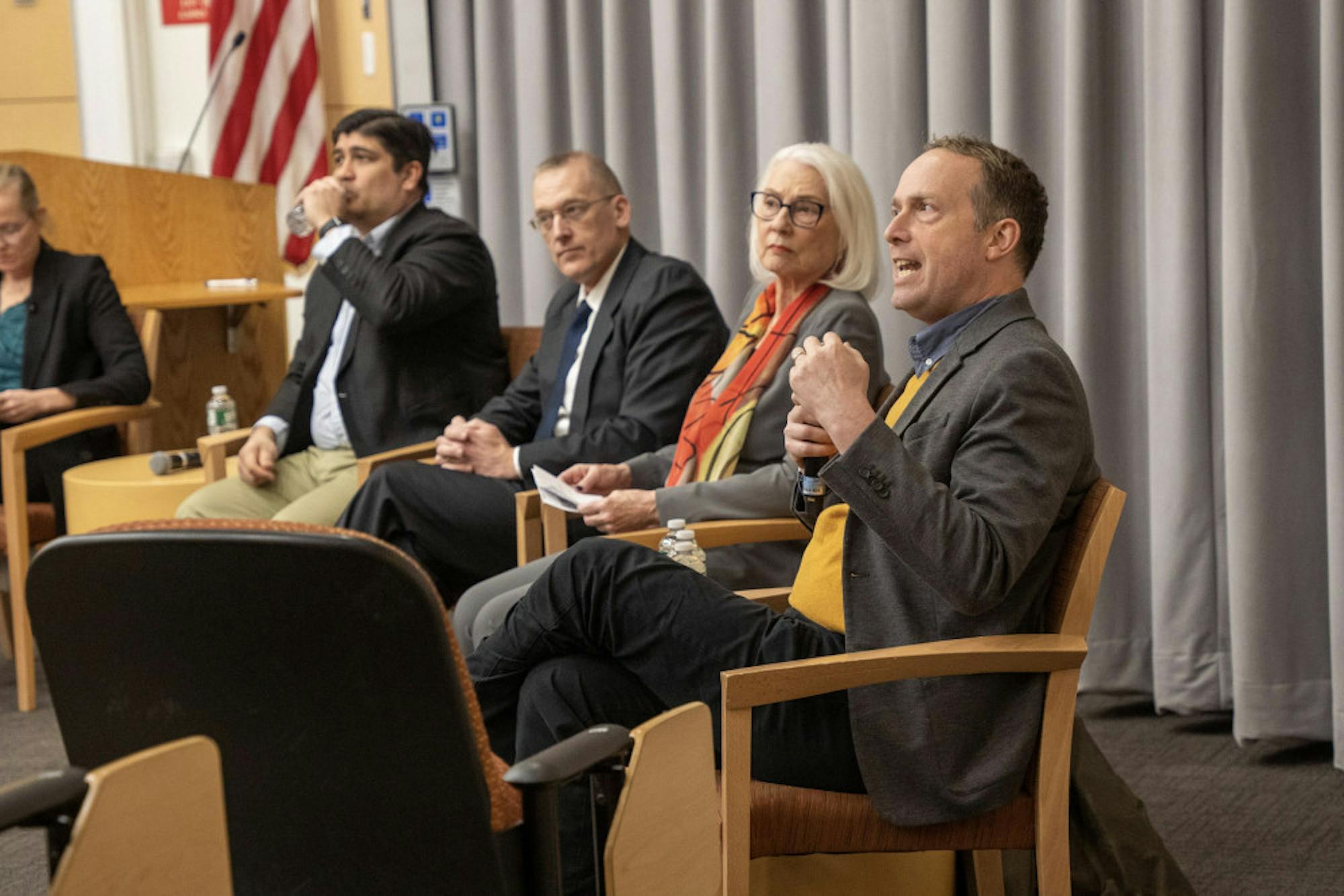The Fletcher Center for Strategic Studies hosted a dialogue on diverse sociopolitical interpretations of security on March 13. CSS Director Monica Toft moderated the discussion, titled “Global Views, Common Security.” The event featured panelists professor David Ekbladh, professor Eileen Babbitt, CSS Assistant Director Scott McDonald and former President of Costa Rica Carlos Alvarado Quesada.
Toft began the conversation by discussing how notions of security have expanded in academic contexts.
“When I think about traditional security, we think about kinetic, we think about force on force, physical but … in the modern era, the notion of security has expanded quite a bit,” Toft said. “We think of not only the physical and the destructive aspects of it, but we also think about the emotional toll, the economic toll, the health toll, the environmental toll.”
Ekbladh then explained the evolution of the term “security” as it relates to social and political contexts.
“Today when we’re talking about some security questions, we are still often talking in very broad social, economic and ideological terms,” Ekbladh said. “It shouldn’t make any of these other elements off limits and it should also remind us that some of these harder and kinetic and strategic questions, very much are bound up at the end of the day. Who you see as your opponent, your threat, can be bound up in some of these softer political and ideological questions.”
Babbitt then discussed the aspirational aspect of human security, adding that security is experienced differently based on gender, race, ethnicity, geography and history.
“The goals of human security as both a study and a practice are about protection and empowerment. So there’s an aspirational element to it as well as a more immediate element to it,” she said. “And the moniker that often comes out about human security is freedom from want and freedom from fear — and what’s also been added to that is the freedom from indignity.”
McDonald discussed his view that politicians in Beijing derive their ideas of security from classical Chinese schools of thought, such as Taoism and Confucianism.
“[It’s a] very different way of looking at the world. [On the] individual level, it's the family, [on the] state level, it's the party … and internationally, it’s hierarchy and understanding China's position in the world,” he said. “Especially when you compare it to some of the other things we’ve said and will be said, [that] is an interesting place to step off and talk about how people will act or view others actions in the Indo-Pacific and how states can seek security.”
Former President Alvarado Quesada discussed security in Costa Rica concerning the country’s decision to abolish its army to ensure safety after the 1948 Civil War. The army was abolished after a history of corruption and abuse of power. Costa Rica has since made significant investments in healthcare and education and relied on international law and the Organization of American States to resolve conflicts, Alvarado Quesada said.
Toft then asked the panel about progress in security in their respective fields.
Ekbladh commented on the connection between development, international politics and ideology. He said that development projects are often structured in a way that reflects the goals and ideologies of the donor country, which can hinder progress, as exemplified by the American War in Vietnam.
McDonald talked about the “One Belt, One Road” initiative. He argued that the initiative was an effort by Beijing to regain its position within the global hierarchy by determining trade regulations while simultaneously portraying itself as the guardian of the “Third World”.
Babbitt reflected on the tension between the human security agenda and the strategic military agenda. She noted that political leaders often face difficult choices regarding where to allocate resources and suggested that a human security agenda, focused on economic growth, education and healthcare, is crucial for sustainability and strength in the long run. Babbitt added that short-term crises and competition can challenge this human security agenda.
Alvarado Quesada delved into the United States‘ history of invasion in other countries, such as Honduras and Nicaragua, leaving them with the persistent fear of potential invasion by foreign powers. He further suggested that development-focused foreign policies could be a better option.
Finally, Alvarado Quesada advocated for healing through memory to bring closure where conflict or intervention had previously occurred.
“I think that's kind of the process we have to do in the region, to have some kind of healing memory about all that has happened, to say ‘OK, ...we are connected,’” he said.






